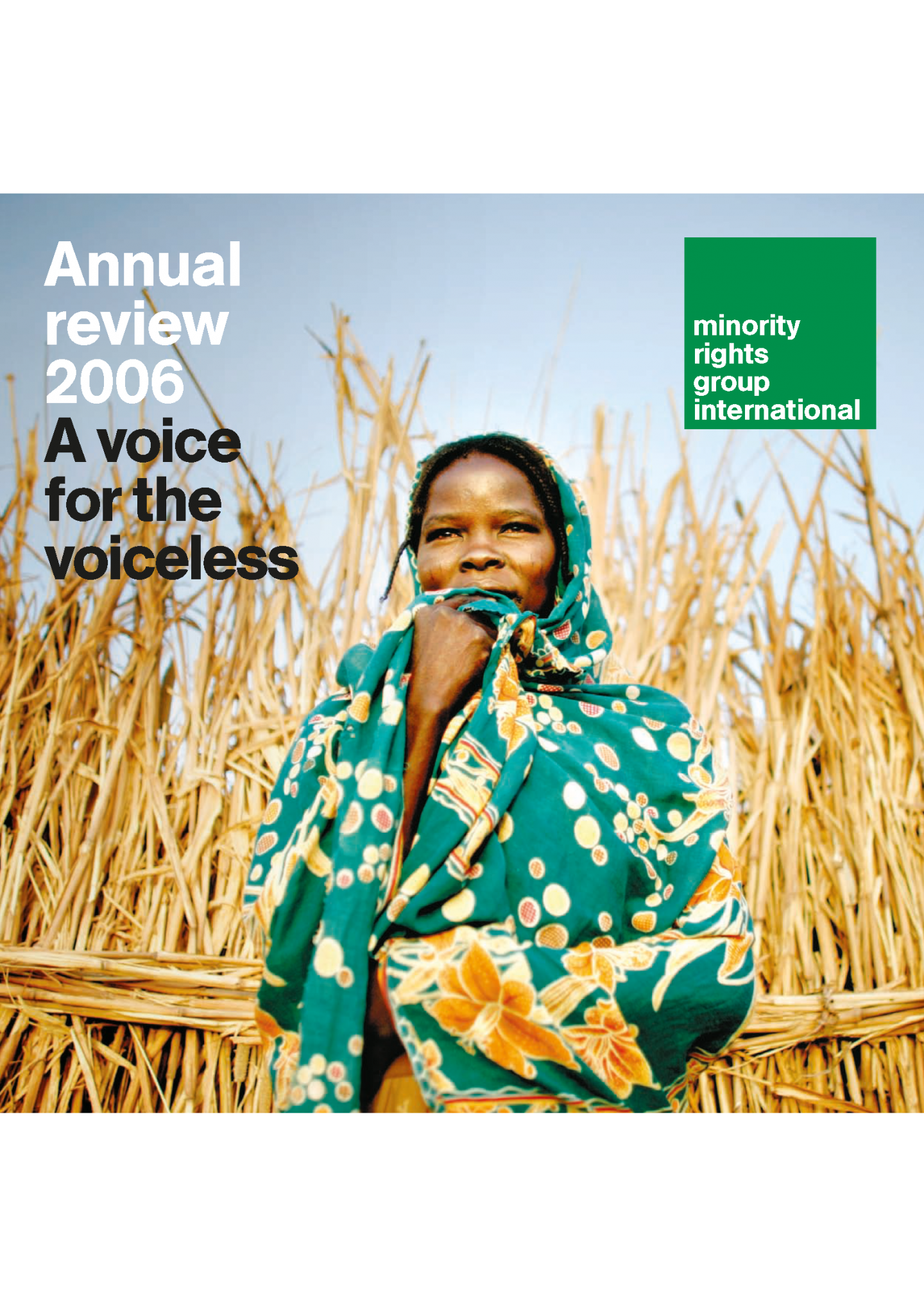
Annual Review 2006 – A voice for the voiceless
Democracy, first and foremost, means giving people control over the decisions that affect their lives. But in societies all over the world, democratic and undemocratic, developed and developing, it is the voices of only some of the people that get heard. In many countries, disadvantaged ethnic and religious minorities and indigenous peoples are effectively voiceless.Participating in public life – whether that is through standing for election, voting, or getting a fair chance to work in government – is a human right protected under international law. Yet for minorities it is one of the most widely misunderstood and abused. Under-represented in parliaments and government, frequently almost invisible in the civil service or judiciary, minorities are typically excluded from decision-making. This is bad for democracy, bad for development and bad for stability.It has long been accepted by international development agencies that sustainable solutions to poverty will only be successful if poor people are involved in their planning and implementation. Yet the Millennium Development Goals, the set of international targets for tackling poverty and deprivation agreed by the world’s nations in 2000, make no mention of minorities and indigenous peoples, in many countries the poorest of the poor. Unless minorities can participate in development policies and projects, goals such as universal primary education and halving the number of those living in absolute poverty will remain not just difficult but impossible to attain.But excluding minorities from political life or the benefits of development has further dangerous consequences. It means that where grievances have arisen between communities there is little political or civil space for their resolution. Members of minorities who have suffered repression – often violent repression – are not presented with any alternative to conflict.Minority Rights Group International (MRG) believes that democratic, prosperous and stable societies depend on ensuring that minorities are able to feel that they have a real stake in the society in which they live. Promoting the participation of minorities therefore underpins all our work. Whether it be pushing for better pastoralist representation in parliaments in East Africa, supporting Iraq’s endangered communities to publicize their plight, or asserting the rights of Europe’s largest and poorest minority, the Roma, we are committed to working with our minority and indigenous partners to win a voice for the voiceless.